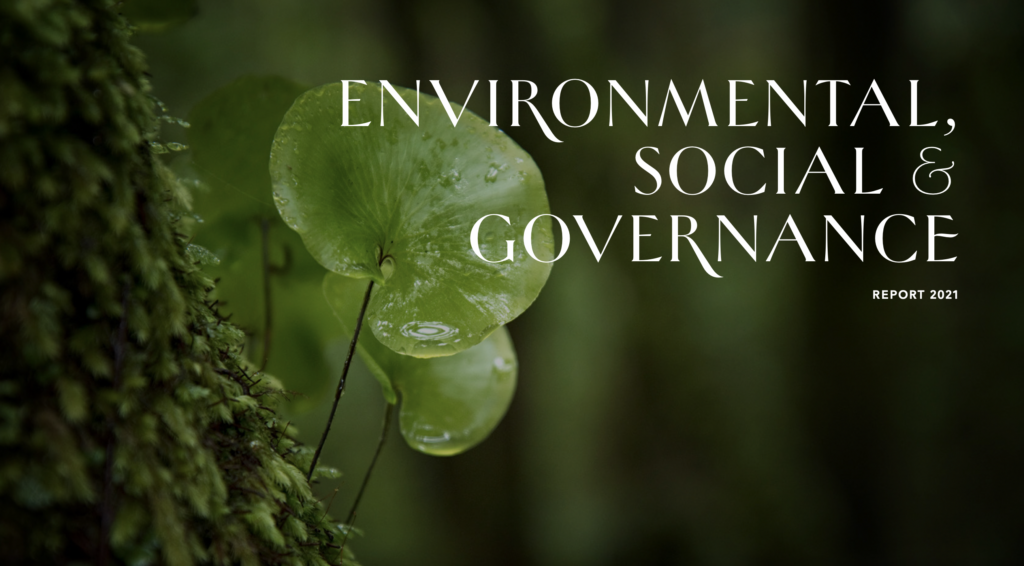
SWITZERLAND: Kempinski has published its first Environmental, Social and Governance (ESG) report 2021.
It’s been a while to develop, and the hotel group has worked for years with other consultants and sustainable initiatives (see page 60 of the report) but Kempinski has finally produced the report, which focuses on the three pillars of ESG – Environmental, Social and Governance.
The 126 page report has been broken down into chapters including background, process, governance, strategy and metrics.
As well as BMS (building management system) and GRMS (guest room management system), Kempinski also has its Hotel Optimiser – software which collects and manages data from each hotel with regards to water, energy, waste management to give a clear picture of the overall carbon footprint. Based on the data, hotels can establish monthly targets for energy and water consumption, considering additional variables such as hotel occupancy and seasonality.
Regarding the carbon footprint of Kempinski’s operations, the report says the group uses “direct fuel combustion and consumption at Kempinski properties (Scope 1), the purchase of energy from the grid (Scope 2) and emissions outside of our direct control that exist upstream (e.g. supplier emissions) and downstream (e.g. waste to landfill) of operations (Scope 3). We are currently in the process of mapping the Scope 1 and 2 carbon footprint for the entire Kempinski property portfolio, with an aim to measure 100 per cent of GHG emissions for 2023. For Scope 3 emissions, the immediate focus is to measure emissions from waste before working with our suppliers to measure upstream emissions.
The report says that in 2021, 16 hotels in 14 countries submitted the data required to calculate their property’s carbon emissions for Scope 1, 2 and partial Scope 3 (waste).
The total combined carbon footprint of these properties was 66,415,683 kg of carbon dioxide equivalent (CO2-e). There was a common theme of increased emissions from 2020, (bounce back from the decreased demand during COVID-19). The data showed that although some properties were able to maintain emissions reductions from year-to-year, ten of the 15 hotels saw increases in total emissions from 2020.
The group acknowledges there is a long way to go when it comes to tackling the issue of net zero. Page 78 explains:
“Kempinski acknowledges that there should be a determination for a non-zero societal cost of carbon (emissions) that is used in shaping corporate strategy and decision-making. Given our current priority to establish the complete carbon footprint of the organisation and to determine the distribution of emissions across operations and properties, Kempinski is not yet able to set an internal cost of carbon. Converting the impact of emissions into monetary terms has been determined to be a material impact for Kempinski and falls in line with our reduction target goal to be achieved by 2024.”
Bernold Schroeder, chairman of the management board of Kempinski AG and chief executive officer of Kempinski Group has led the Sustainability Committee to implement the policies across the group. His colleague on the committee, and executive vice president, general counsel and interim company secretary, Kempinski Hotels S.A, Hadrian Beltrametti Walker, said: “Striving towards better environmental efficiencies, better social responsibility and better governance is absolutely critical. Now that the report has been published, the Committee’s next goal over the coming months is to continue the good trendline towards concrete ESG goals and targets. By the end of 2022, ESG targets will be integrated with the broader corporate strategy, following extensive consultation with stakeholders from across the supply chain.”
He added: “Our objectives are to identify concrete goals and targets pertaining to ESG impacts across the Kempinski constellation and to measure 100 per cent of Kempinski corporate and property emissions for 2023. At the same time, we must ensure that all Kempinski stakeholders, from hotel owners and employees to suppliers and other parties, are fully onboard and understand the environmental, financial and reputational benefits of these targets.”
To meet these goals, Kempinski will continue to work with key professional partners and will be working with the environmental benchmarking organisation EarthCheck.
The hotel also works with the initiative BE Health, which according to the website is “A ‘Glocal’ corporate social responsibility programme created by Kempsinksi. Thinking globally while acting locally. Be Health aspires to make health contagious and in and around hotels”.
You can see the full report here.
Hilton recently updated its ESG targets in sustainability push.

